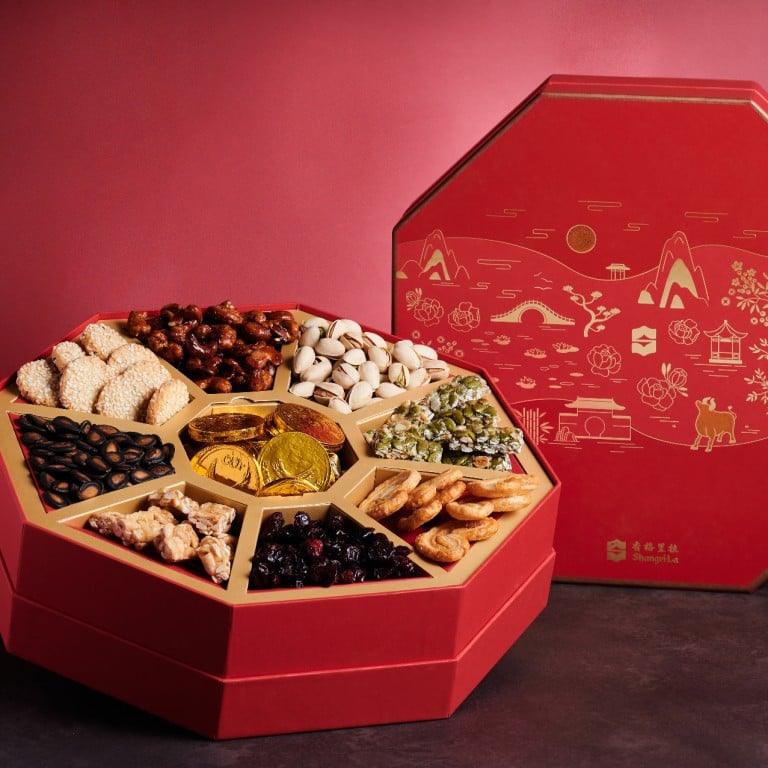What is the Lunar New Year chuen hup, or candy box, and what are the auspicious meanings behind the snacks found inside?

- As we welcome the Year of the Ox, kids are sure to get just as excited about the traditional candy box as they are about red packets, or lai see
- Besides sweets, the box is typically filled with lucky snacks such as coconut, mandarins, melon seeds and lotus seeds, which invite weath, success and love
First of all, chuen hup used to be called zan hup, which means “coming together” or “togetherness” as well as “perfection”. The type of container was a common fixture in wealthier households, filled with snacks for guests. Over time, the box became a common feature of Lunar New Year, so the word cheun was adopted because of its meaning and phonetic similarity to zan.
A typical chuen hup has eight compartments – a number associated with wealth in Chinese culture – but it can have anywhere between four to 12 compartments. And before candy became a common product in the supermarkets, the box was filled with Chinese dried sweets, fruits, nuts and seeds – all of which have their own auspicious symbolism.

The Chinese words for sugared dried coconut and coconut sound the same as grandfather and son, so having those foods in the box means three generations coming together to bless the household with health and longevity.
The words for dried mandarins or kumquats, meanwhile, share the same phonetics as the word for gold. This is also why the fruits are featured in Lunar New Year art and decorations, when they aren’t being eaten as snacks.